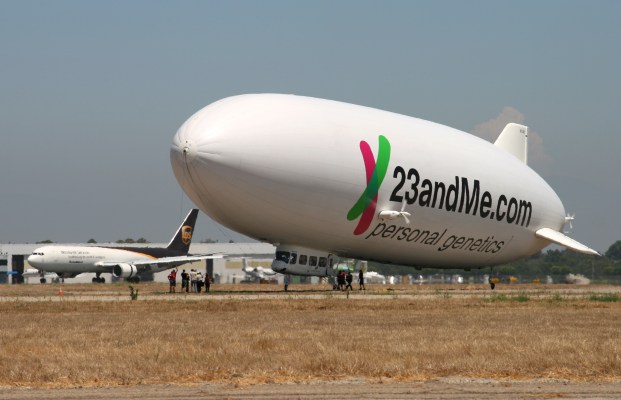23andMe, the Mountain View-based genetic testing and analysis company, is raising close to $200 million in a funding round led by Sequoia Capital, multiple sources tell us. Sources say that Fidelity is also looking to participate.
We’re now hearing that this round is being done at a $1.5 billion pre-money valuation. This is about 50% higher than the roughly $1 billion valuation from the last private round.
We’d first heard in spring that the 11-year-old company was looking for more money to expand its genetics research arm and develop new products.
The fresh capital should allow it to continue growing its revenue, without the pressure of going public just yet, which sources say that cofounder and CEO Anne Wojcicki is reluctant to do.
Previously, 23andMe raised over $230 million, dating back to 2007. Google, Genentech, NEA and Johnson & Johnson are amongst its prior investors.
23andMe has been leaning more on its research efforts since it was stifled in 2013 after being ordered by the Food and Drug Administration to cease sales of its personal genomics test. The FDA said at the time that the company didn’t meet FDA standards. 23andMe subsequently stopped selling genetic health information to new consumers and began looking for alternative sources of revenue.
Among its subsequent moves was beefing up its medical research, hiring more scientists and partnering with genetics outfits to conduct high-level studies. Celmatix, a genetics company studying fertility, is currently working with the company for a study on how certain genes affect women’s ability to get pregnant.
The FDA relieved the pressure somewhat in 2015, allowing for one genetics test for Bloom syndrome, a rare recessive gene disorder. In another surprise development this past April, 23andMe received the green light from government regulators to sell a service that gives customers a risk analysis for 10 genetically linked diseases, including late-onset Alzheimer’s and Parkinson’s. According to one source, the company is also seeking approval to begin conducting risk analysis on breast cancer-related genes BRCA-1 and BRCA-2, potentially putting a competitor, Color Genomics, in its cross hairs.
Based on some of 23andMe’s newer hires, we wouldn’t be shocked to see the company dive into drug development, either.
We’ve reached out to Fidelity with questions about the funding. Sequoia, meanwhile, declined to comment. 23andMe also declined to comment.
Typically, companies won’t go public until at least a year after their last financing round, and usually a little longer, though IPOs remain a fairly standard path for late-stage venture-backed companies. In fact, another 23andMe competitor, Ancestry.com, said in June that it confidentially filed for an IPO in June. It didn’t disclose how much it plans to raise.
Another possible outcome for 23andMe would be an acquisition. Though there’s no reason to think that Wojcicki is looking to sell, M&A has largely replaced R&D in pharma and other healthcare related industries.
